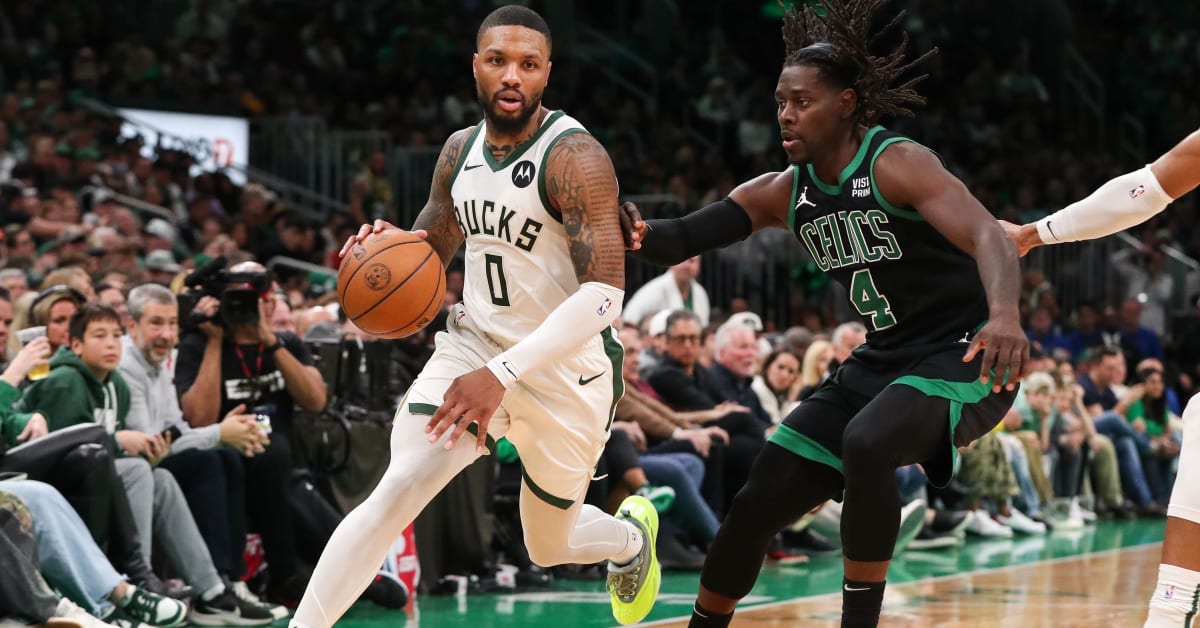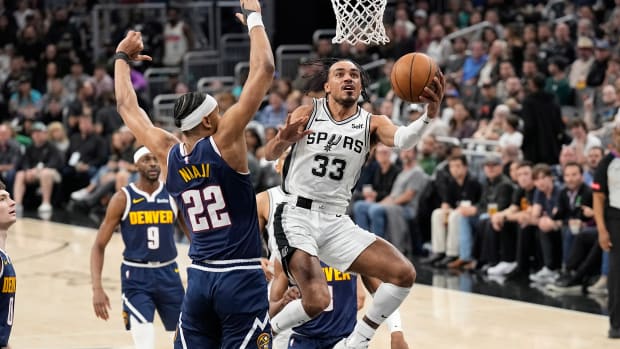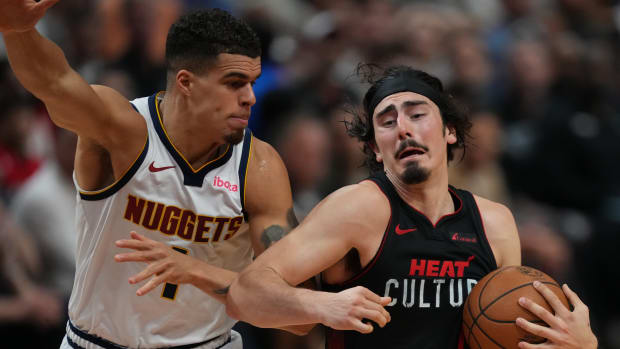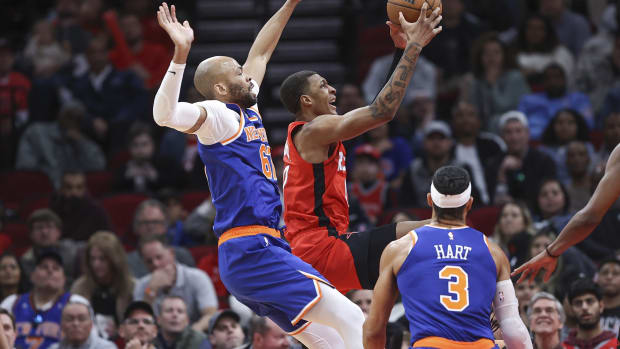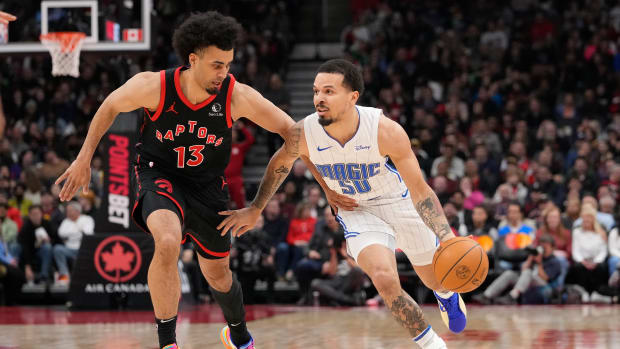The Bucks Have Supercharged the Celtics More Than Themselves
For nearly 43-ish minutes of their Wednesday loss to the Celtics, the Bucks were experiencing something of their worst nightmare. Not only was Milwaukee getting run off the floor for most of the action (trailing from anywhere from 10 to 20 points for much of the night), the Bucks were losing at the hands of a team they helped create. A late run briefly threatened Boston’s stranglehold on the game, but the Celts held on for a 119–116 win.
If Milwaukee is Dr. Frankenstein, then the Celtics are kind of like Frankenstein’s monster. That’s because the collateral damage of the Damian Lillard trade opened the door for Jrue Holiday to join the Celtics, and it has made Boston into something of an early-season juggernaut, and certainly the favorites in the East. As Giannis Antetokounmpo said in the wake of the Holiday trade, “before loyalty, winning comes first.” Boston had no problem snatching up its former rival after he was shipped to the Blazers, and so far they’ve reaped the rewards of the summer’s machinations much more so than Milwaukee.

The addition of Holiday has bolstered the Celtics, who are now 12–3.
Paul Rutherford/USA TODAY Sports
Entering Friday, only 16 lineups in the NBA have played at least 100 minutes together. Boston’s starting five of Holiday, Jayson Tatum, Jaylen Brown, Derrick White and Kristaps Porziņģis has a net rating of 27.0, 10.1 points per 100 possessions better than the second-best unit. The gap between two and five is smaller than the gap between Boston and second place.
Meanwhile, Milwaukee’s most used group of Lillard, Antetokounmpo, Brook Lopez, Khris Middleton and Malik Beasley has a 6.0 net rating in 93 minutes. It’s solid, but those numbers certainly aren’t eye-popping like Boston’s. Overall, the Bucks are actually a negative when Lillard and Antetokounmpo have shared the floor, posting a minus-2.1 net in 280 minutes. (Interestingly, Milwaukee has fared much better when one of their two stars plays without the other.)
Sure, the Bucks need time. Dame and Giannis are too talented not to figure this out. But the Lillard trade was supposed to pour gas on the fire. (Remember Freak Time?) Lillard and Antetokounmpo were supposed to be the next great pick-and-roll combo, and their lives were both supposed to be much easier since the trade. Instead, Lillard’s scoring and efficiency have dipped, while Antetokounmpo has fewer assists and fewer trips to the free-throw line.
Again, given enough games, Lillard and Antetokounmpo should be able to figure things out. You know who hasn’t needed that, though? Boston. The Celtics’ starting five has been dominant since opening night, adding not only Holiday but Porziņģis as well. Of course, Boston didn’t have to incorporate a ball-dominant superstar, but so far the Lillard trade has been more beneficial to them than Milwaukee.
Not only do the Celtics have the best starting five in the league, but so far they have the best team, leading the NBA in wins and net rating. The Bucks, on the other hand, appear firmly a tier down in the East. Their 2.5 net rating is 12th-best, sandwiched between the upstart Pacers and injury-ridden Suns.
Milwaukee is still 10–5, and it shouldn’t be panicking. This team does need Lillard and Antetokounmpo to get going, if only because the depth beyond them hasn’t inspired much confidence this season. The irony, though, is that while the Bucks made the move they thought would bring them closer to a championship, so far they’ve appeared to help bring their biggest rival closer than themselves.






























